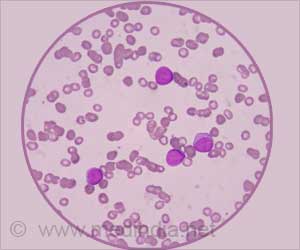Specific types of leukemia called T-cell acute lymphoblastic leukemia (T-ALL) in childhood may respond to a combination treatment strategy by modifying a protein chain reaction.

‘Specific types of leukemia called T-cell acute lymphoblastic leukemia (T-ALL) in childhood may respond to a combination treatment strategy by modifying a protein chain reaction.’





“Often, scientists tell cancer cells apart from healthy ones by looking at faults in the DNA. In our new study, we looked at proteins instead. We looked for proteins with unusually high activity, which likely point to ways for cancer cells to evade treatment. These could be potential targets for therapy,” says Valentina Cordo, a PhD-student in the Meijerink group at the Princess Máxima Center. The team analyzed all the protein switches in 11 different kinds of T-ALL cells to find an overactive chain reaction of proteins called INSR/IGF-1R. The group further studied the high efficacy of drug combinations.
“When exploring potential new ways of attacking leukemia, it’s important to have the full picture of weaknesses in these cells. We’ve shown that looking at protein activity gives a more complete picture of the weaknesses in leukemia. In future, our research could help discover new treatment strategies for children with the disease who don’t respond to standard treatment,” says Cordo.
However, the study requires further research to test the drug combination through clinical trials and translate them to the clinic.
Source-Medindia














